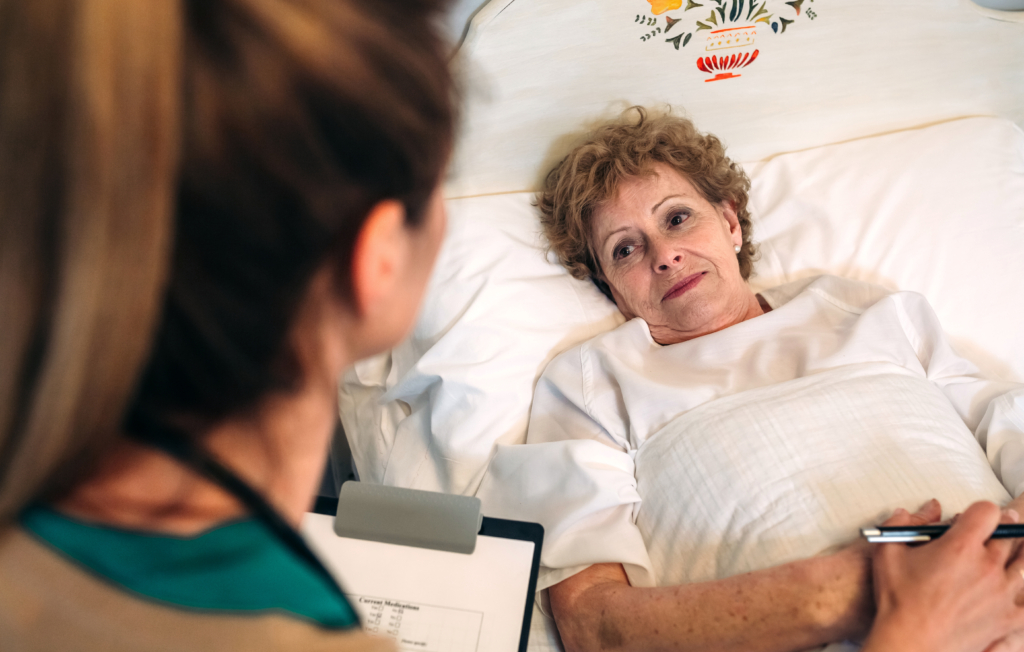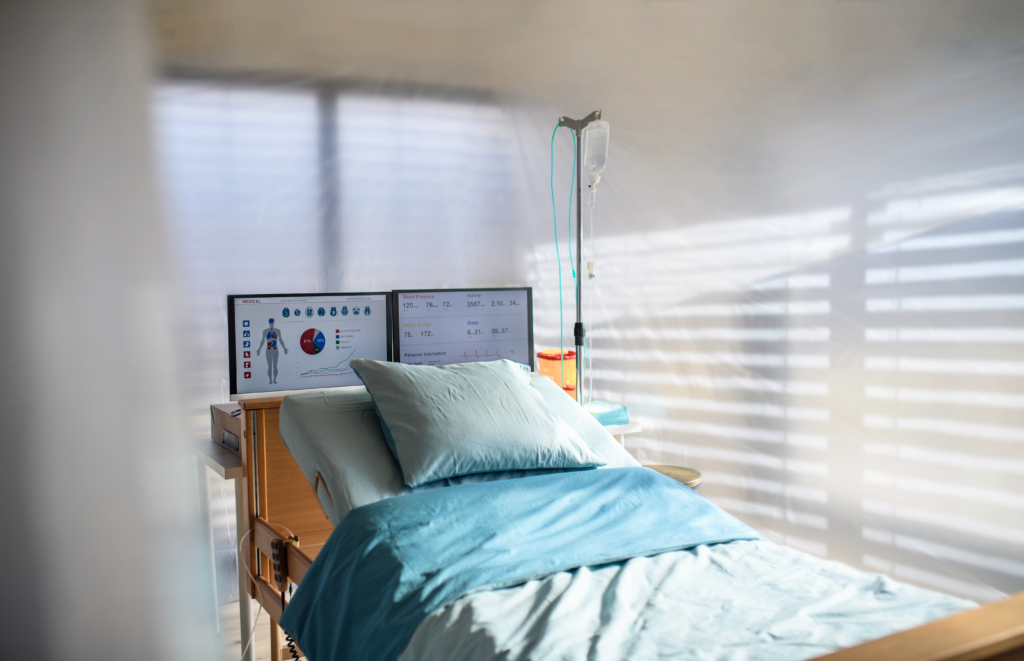As an R.N. in Utilization Review one of my roles is to look at a patient being admitted to the hospital and determine if they are in the right billing status. Many people do not understand that when you are admitted to the hospital you can be in one of two billing status buckets and we will try and explain both. Knowing which status you or a loved one falls into, may allow you to be prepared for your bill and save some money by being aware. If you are a child of an elderly parent this is an important concept in assisting them in managing their medical bills especially when they have Medicare or a Medicare Advantage Plan with an insurance company.

nsion of your outpatient treatment plan after leaving the ER. Observation mean outpatient. Under Medicare, outpatient is covered under Medicare Part B just like a doctor visit in the clinic or just like going to outpatient physical therapy. Medicare pays this at 80% and the patient has a 20% co-payment. An Observation stay is usually around 24 hours or can be up to 48 hours or beyond in very special out of the ordinary circumstances. Some Medicare Advantage Plans may pay longer than 48 hours but it is important that you discuss this with the Insurance Company. If the patient does not have a Secondary Insurance for Medicare, the remaining 20% of the hospital bill may not be covered and will be the patient’s responsibility. Worst case scenario if you do not have Medicare Part B you may be responsible for the entire bill! If you have a medi-gap plan you may be ok. Please check with your insurance company or Medicare to see where you stand and what your financial obligation is for an Observation stay. This article is not intended to give advice on what type of coverage you should have but to make you aware of how being in the hospital can impact you financially. All hospitals are required to have a form completed and signed by the patient or agent upon admission to Observation Status to inform them of the potential financial liability with this type of hospital stay.

How else is an Observation Stay different? Managing your medications is another potential risk for added expense to you. Under Observation care IV or Intravenous medications as well as IM or “shots” are covered under your Observation stay with Medicare Part B. Routine medications pills are not. This can be a big expense. If you have Medicare Part D (drug plan) or a Medicare Advantage Plan with an insurance company please inquire how your medications will be covered with an Observation stay. One of the ways you can help keep down the medication costs is to ask the doctor that is admitting you to the hospital for Observation to “hold” any routine home medications he or she feels you can do without for the next 24-48 hours. Certain medications of course may be needed but all the supplements and possibly others can be held while in the hospital. The second way you may be able to help fight the medication cost is to see if your hospital will allow you to bring in your routine medications from home and allow the nursing staff to administer “your” personal medications while you are admitted. Some hospitals will agree to provide this service and others may not and see it as a safety concern with medications brought in from the outside. It is always good to ask.

Why is it better to be admitted under the Medical Inpatient Status? This is a full hospital admission that the doctor says you will be in the hospital at least of minimum of 2 midnights or greater than 48 hours. The patient is usually more ill and has been diagnosed with an illness that would require more focused and robust care. For example, let’s say you again came to ER with the complaints of abdominal pain. You were diagnosed from the Emergency Room with a bowel obstruction. This type of illness generally requires 2-3 days or more depending on your circumstances and possible complications. You may even end up with a tube inserted through your nose into your stomach to drain it and keep you comfortable and may not be able to have anything to eat for a day or two. Are you seeing the difference? This is for sure a more intense illness and needing more care. If you have Medicare Part A under this type of inpatient admission for up to the first 60 days you will not have any co-pays for your hospital stay and all your medications are covered including oral or pills.

Does my experience look different when I am admitted to Observation vs Inpatient? This is why it is important to ask and be informed. Your stay may look and feel exactly the way it would if you were a complete admission to Medical Inpatient. You will go to a room in the hospital and the staff will treat you the same way regardless of which status you are in. It would be very difficult to tell until you get your bill except for the Observation or Medicare MOON form you should have signed upon admission.

How can you be proactive when admitted to the hospital? Each hospital has staff that work with determining what is the appropriate admission status for each patient to make sure the hospital is following the correct guidelines and regulations. There are written recommendations or “criteria” that needs to be met for both an Observation stay and an Inpatient stay. These staff members may or may not be nurses, and they could be called Case Managers or Utilization Review Personnel. This person would be very helpful in explaining why you are in the status you are in. Their job is to review the admitting criteria and help the provider admit you in the correct status. Please don’t hesitate to ask to speak with someone that can better explain why you are in Observation vs Inpatient admission status.

To help you get a better understanding of why you may be admitted to Observation vs Inpatient as a general rule of thumb, but not absolute by all means, is that if you are admitted with a symptom vs. a medical diagnosis, you are probably going to be admitted to Observation. Examples include using only oral pain medication to help control pain, nausea and vomiting, general weakness without a known cause, mild stroke symptoms that are often resolved by the time you get to your room, chest pain that requires more work up and not appearing to be heart related, and things like diarrhea where you may be dehydrated but after some IV fluids your symptoms improve.
What happens if you don’t get better in 48 hours or less? This is a great question. During your hours under Observation you will probably be undergoing more diagnostic work ups, blood work, x-rays, CT Scans, may be an MRI, etc. If at any time the doctor decides that your condition has worsened or have found a diagnosis indicating you will not be ready to go home in 48 hours, the doctor can write an order to change your status while you are in the hospital. The provider can change you from Observation to Medical Inpatient and from the entire day the change is made, you are covered with the Inpatient payment process. For example, your doctor decides your condition is worsening or will need treatment beyond 48 hours and you are now diagnosed with pneumonia and are requiring to be placed on oxygen. If the provider writes the order at 10:00 a.m. on Monday you are covered under Medical Inpatient from midnight on of Monday the day the order was written. It is important to know that under Observation you are occurring hourly charges. Under Medical Inpatient you are charge by the day counted as mid night stays.

How does each status impact you when you are discharged from the hospital? Since Observation is billed hourly each additional hour you stay adds to the bill. The doctor’s and nurses are aware of this and will try to provide a reasonably quick discharge on the day you are going home. If you are in the hospital and an Observation patient and the doctor says you can go home, don’t hesitate to say you are an Observation patient and would appreciate a timely discharge as to stop the hourly charges. Sometimes you will need medications, treatments, or a longer time to be watched or observed before you go home so there may be a reason you have to stay let’s say until the afternoon before going home. Just be informed and ask questions. With Medical Inpatient, the hospital is not billing by the hour but by the day so anytime before midnight on the day you are scheduled to go home will not impact your bill.

The last area we want to touch on that is affected by being in an Observation Status is how Medicare will pay if you have to go to a nursing home from the hospital before you are well enough or safe enough to go home. If you are admitted to Medical Inpatient and stay in the hospital at least three mid-nights, Medicare A will pay in full for the first 20 days you spend in the nursing home. If you had an Observation stay in the hospital and then go to a nursing home Medicare will not cover any of the costs. Again, we want you to be informed and ask questions when you are in the hospital so you can make informed decisions regarding your care. Hospitals have to follow the guidelines and regulations so they can get paid from Medicare and are doing everything they can to help admit you to the correct status and limit your financial obligations as much as possible.
The health care system is complex and ever changing. Please ask your Medicare advisor, Insurance provider, or other expert regarding your obligations to pay any portion of your hospital bill to make sure you are getting current up to date information. Our goal is to educate you and help you to be prepared in navigating the ever changing world of healthcare!




